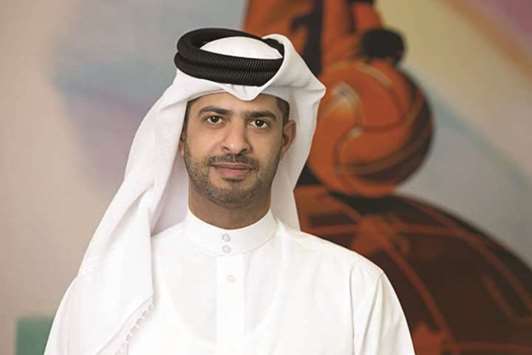Assistant secretary general Nasser al-Khater, in an interview to Spanish newspaper AS, said that the numbers are almost three times as much as the numbers for Brazil and South Africa.
“We hope between 1.1 and 1.5 million fans will come. That would be more than Brazil (600,000) and South Africa (500,000) and it would be a record,” al-Khater, who is in Madrid for the World Football Summit, said.
“You need to remember that Qatar is just four hours from a number of cities in India, and China is close too. This World Cup will be different to previous tournaments. It will be an opportunity to introduce Arab culture to the world and counteract negative stereotypes.”
Qatar not only enjoys geographical advantage, having venues closer to each other is also an advantage for teams and fans, who won’t have to spend on domestic travel, multiple hotel bookings, etc., according to al-Khater.
“The teams and fans won’t have to travel inside the country or change hotels during the tournament, because everything is so close. In fact, technically you could watch three games in a day. The metro, which is planned for 2019 or 2020, will connect all the stadiums, with the exception of Al Khor, which will be connected by buses,” he said.
“When you go to Disney World you want to have everything right by you, well Qatar is like that.”
Middle East’s first football World Cup is just over five years away and the organisers have already expressed satisfaction over the progress so far.
Earlier this year, Khalifa International Stadium, which will host matches upto the quarter-final stage at the 2022 extravaganza, was re-opened earlier this year after an extensive renovation, and even hosted the 2017 Emir Cup final between Al Sadd and Al Rayyan, which the former, led by Spanish superstar Xavi, won 2-1.
“We’re very happy with the progress. We’ve re-opened the first of our stadiums, the Khalifa, and in 2018 we’ll open two more. We think they’ll all be ready by 2020. And it’s not just the stadiums that are coming along well, it’s also all the infrastructure,” al-Khater said.
Talking about venues and infrastructure, legacy is something that Qatar has long focussed on.
Not only will many of the stadiums be used by Qatar clubs, modular arrangements mean that many of the seats will be sent to countries that need them after the World Cup.
“We’ll have eight or nine stadiums, not more than nine. All of them will be new, with the exception of the Khalifa, which has been renovated. The opening match and the final will be in Lusail. And the legacy plans are already in place: some stadiums will be used by Qatar clubs, while others will be used for other purposes,” al-Khater said.
He was quick to point out that Qatar won’t have to deal with white elephants like South Africa and Brazil have had to in the past.
“What happened with some stadiums in South Africa and Brazil won’t happen here. FIFA are currently carrying out inspections every two to three months and they’re very happy with how things are going,” he said.
Al-Khater added that excitement around the World Cup will help the tourism sector grow in the country.
Security is another area that Qatar is very serious about.
“We have periodic meetings with Interpol. And we’re sending 85 people to Russia to see how they do it; the Russians are very strong on security aspects. In November we’ll have the first Major Event Security conference in Doha. Of course we’re taking terrorism seriously, but Qatar hasn’t had a problem in that area, so it’s not a bigger issue than any of the other elements. We’re focused on everything that needs to be done to ensure the tournament is a success. We’re very excited to be hosting the World Cup,” al-Khater said.

